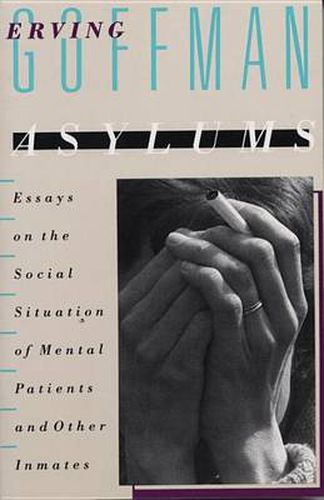Readings Newsletter
Become a Readings Member to make your shopping experience even easier.
Sign in or sign up for free!
You’re not far away from qualifying for FREE standard shipping within Australia
You’ve qualified for FREE standard shipping within Australia
The cart is loading…






Asylums is an analysis of life in total institutions – closed worlds such as prisons, army training camps, naval vessels, boarding schools, monastaries, nursing homes and mental hospitals – where the inmates are regimented, surrounded by other inmates, and unable to leave the premises. It describes what these institutions make of the inmate, and what he or she can make of life inside them. Special attention is focused on mental hospitals, drawing on the author’s year of field work at St. Elizabeth’s in Washington, D.C., one of America’s most well-known institutions. It is the thesis of this book that the most important factor in forming a mental-hospital patient is the institution, not the illness, and that the patient’s reactions and adjustments are those of inmates in other types of institutions as well.
The first essay is a general portrait of life in a total instituion. The other three consider special aspects of this existence: the initial effects of institutionlization on the inmate’s previous social relationships; the ways of adapting once in the institution; and the role of the staff in presenting to the inmate the facts of his or her situation.
$9.00 standard shipping within Australia
FREE standard shipping within Australia for orders over $100.00
Express & International shipping calculated at checkout
Stock availability can be subject to change without notice. We recommend calling the shop or contacting our online team to check availability of low stock items. Please see our Shopping Online page for more details.
Asylums is an analysis of life in total institutions – closed worlds such as prisons, army training camps, naval vessels, boarding schools, monastaries, nursing homes and mental hospitals – where the inmates are regimented, surrounded by other inmates, and unable to leave the premises. It describes what these institutions make of the inmate, and what he or she can make of life inside them. Special attention is focused on mental hospitals, drawing on the author’s year of field work at St. Elizabeth’s in Washington, D.C., one of America’s most well-known institutions. It is the thesis of this book that the most important factor in forming a mental-hospital patient is the institution, not the illness, and that the patient’s reactions and adjustments are those of inmates in other types of institutions as well.
The first essay is a general portrait of life in a total instituion. The other three consider special aspects of this existence: the initial effects of institutionlization on the inmate’s previous social relationships; the ways of adapting once in the institution; and the role of the staff in presenting to the inmate the facts of his or her situation.